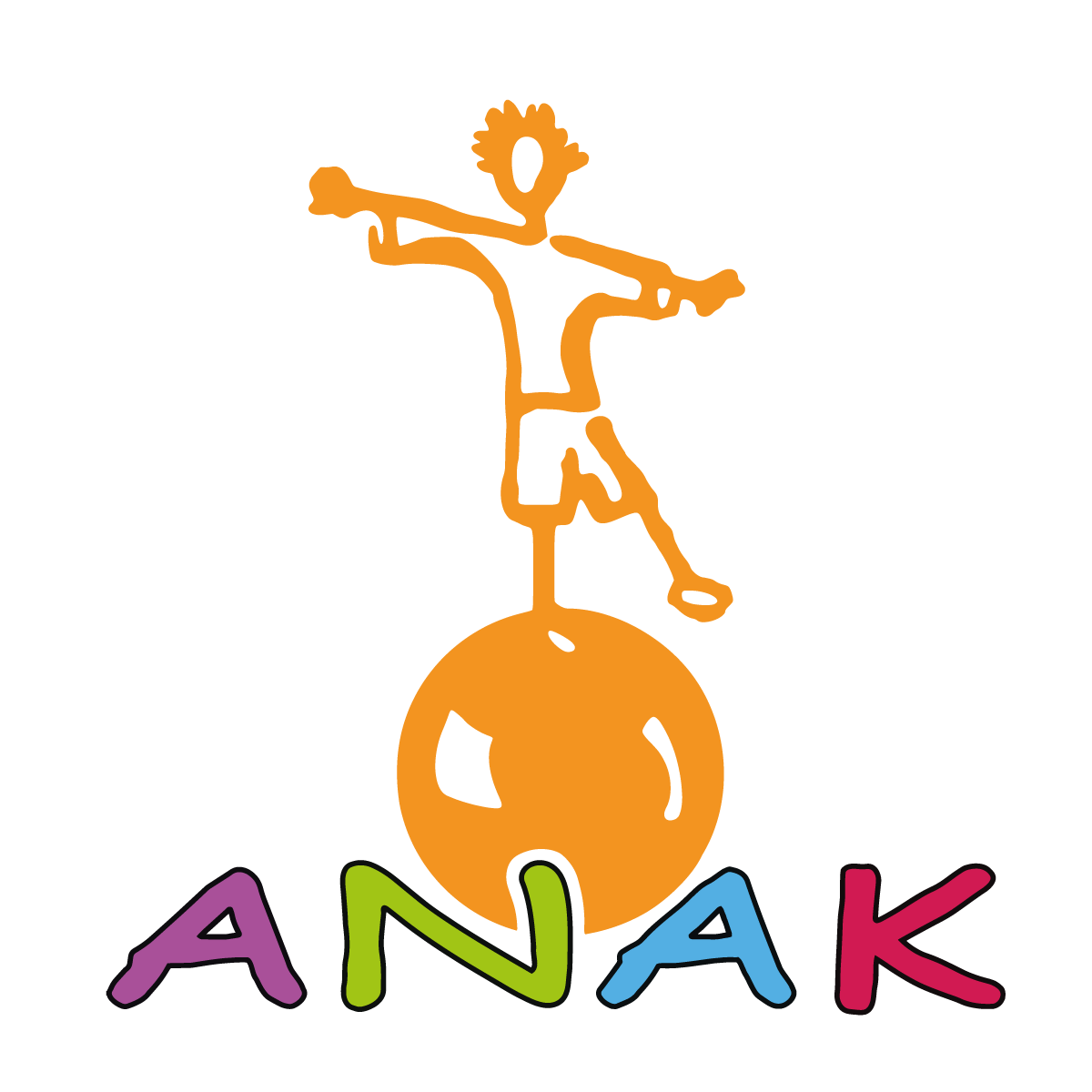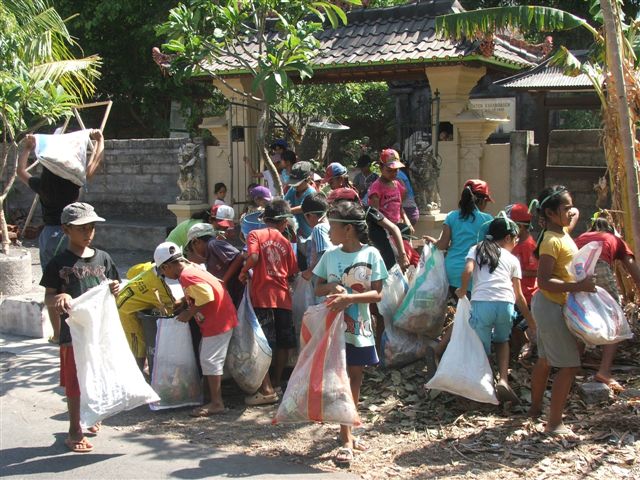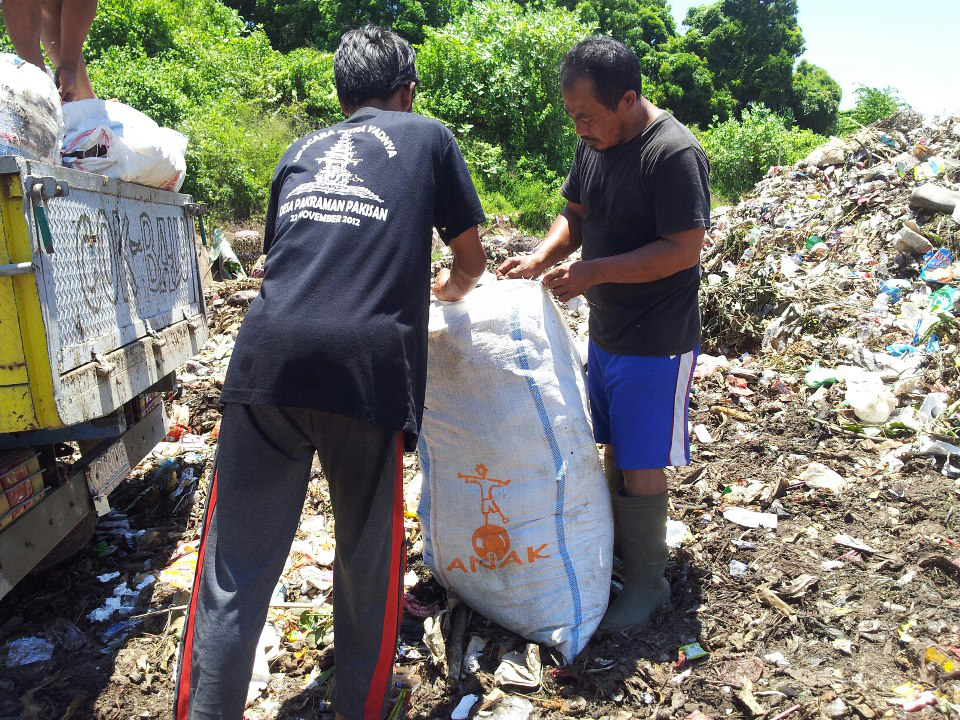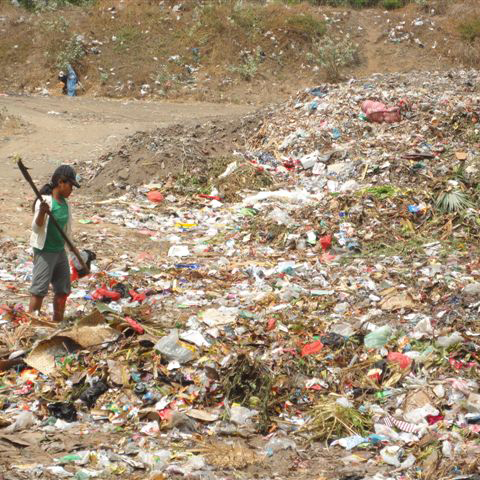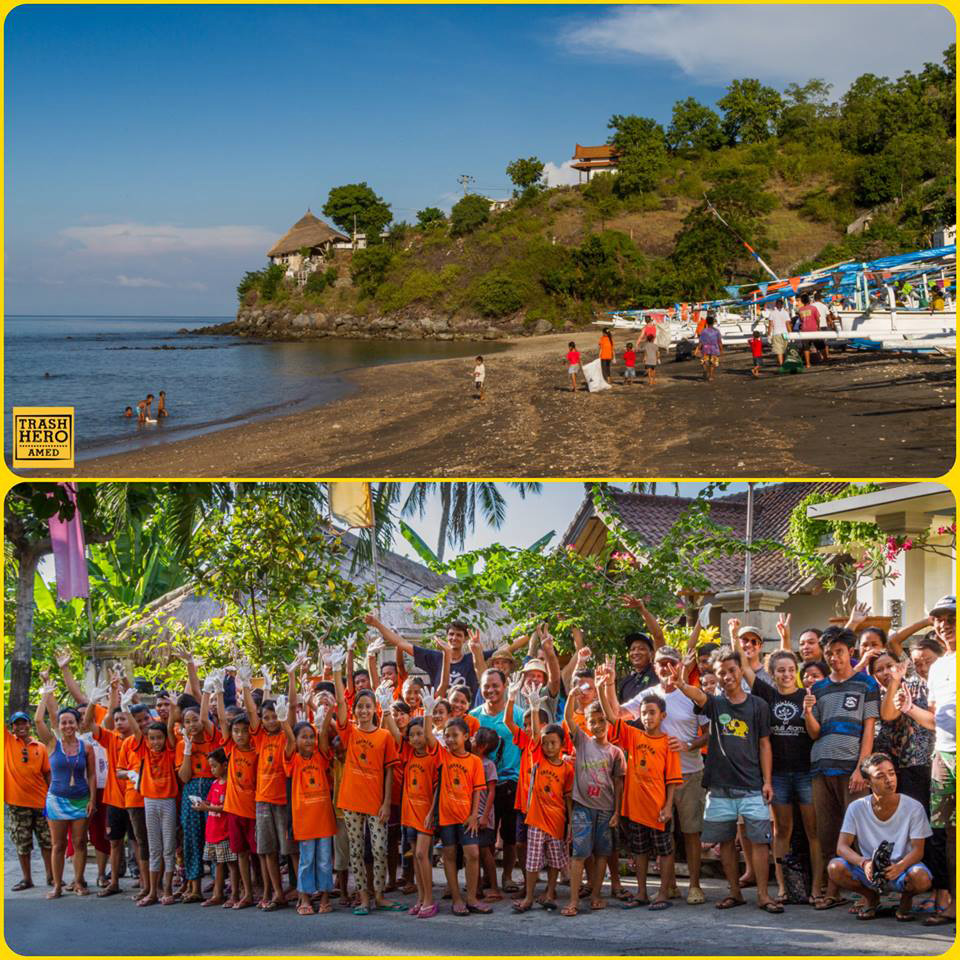The children are involved in and made aware of activities relating to the collection and treatment of waste and environmental protection.
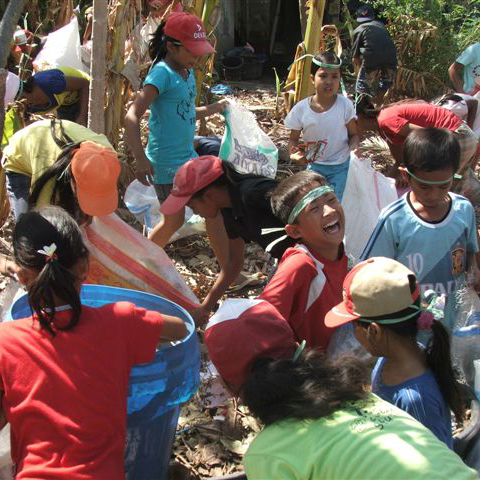

PLASTIC BOTTLES
In October, the children from Buddhi Centre together with coordinator Gede Artama decided to re-use the centre’s empty plastic bottles and make them into flower pots. This activity provided the building with a plant-covered wall and demonstrated to the community that waste material can have a second life.
PAKISAN CARE AND WASTE MANAGEMENT
 PAKISAN CARE is a plastic-waste-collection program located in Pakisan. Every day, plastic waste is collected by ANAK’s children and members on their way through various villages to the Buddhi Cita and Lila Cita centres. It is then sold to a sorting centre. In 2015, after three years in existence, this sustainable program was recognized by the regional government of Buleleng and placed under the responsibility of Pakisan village. The regional government noted the positive impact of such a project, such as, for example, educating and making 80% of the local population aware of waste management. Anak continues to advise the new team in charge and hopes that communities will stay involved so that the project may keep on being successful in the long term.
PAKISAN CARE is a plastic-waste-collection program located in Pakisan. Every day, plastic waste is collected by ANAK’s children and members on their way through various villages to the Buddhi Cita and Lila Cita centres. It is then sold to a sorting centre. In 2015, after three years in existence, this sustainable program was recognized by the regional government of Buleleng and placed under the responsibility of Pakisan village. The regional government noted the positive impact of such a project, such as, for example, educating and making 80% of the local population aware of waste management. Anak continues to advise the new team in charge and hopes that communities will stay involved so that the project may keep on being successful in the long term.
LEAN BEACH CLEAN UP WITH TRASH HERO
After meeting Anak’s representatives at the Lovina festival last year, the volunteers of the TRASH Hero project invited Anak to their weekly clean-up of Lean beach, located in front of Lila Cita centre. In this way, Anak’s children were able to participate in a local project and demonstrate their involvement to the community. To date, 288 kg of waste have been collected from the beach. This is an alarming volume, but it has provided the children with an opportunity to contemplate even more about problems concerning waste-management in Bali. The next step is to continue the partnership and make the local community aware of the issue.
In 2015 and 2016, through various projects and partnerships, Anak decided to involve the children in protecting the environment even further. The end of waste…it begins with me and water filters! Thanks to support from the Mulhouse Rotary Club, Anak’s three welcome centres are now equipped with water filters preventing an overconsumption of plastic bottles and enabling children to re-fill their flasks with clean, local, filtered water as often as they would like to, for free!
WASTE PROCESSING: ACCESSORIES MADE FROM PACKAGING
 In partnership with the BALI BARAT RECYCLE PROJECT association, children from the Lila Cita centre visited Gilimanuk to find out about plastics processing and to learn how to braid packaging into creative coin purses, bags, school bags, etc. It was a wonderful day of discovery providing them with very useful knowledge for their community which suffers from this type of pollution (garbage being dumped into the ocean and then washing up onto the beaches of Amed district).
In partnership with the BALI BARAT RECYCLE PROJECT association, children from the Lila Cita centre visited Gilimanuk to find out about plastics processing and to learn how to braid packaging into creative coin purses, bags, school bags, etc. It was a wonderful day of discovery providing them with very useful knowledge for their community which suffers from this type of pollution (garbage being dumped into the ocean and then washing up onto the beaches of Amed district).
ECOBRICKS: NEW LIFE FOR PLASTIC BOTTLES
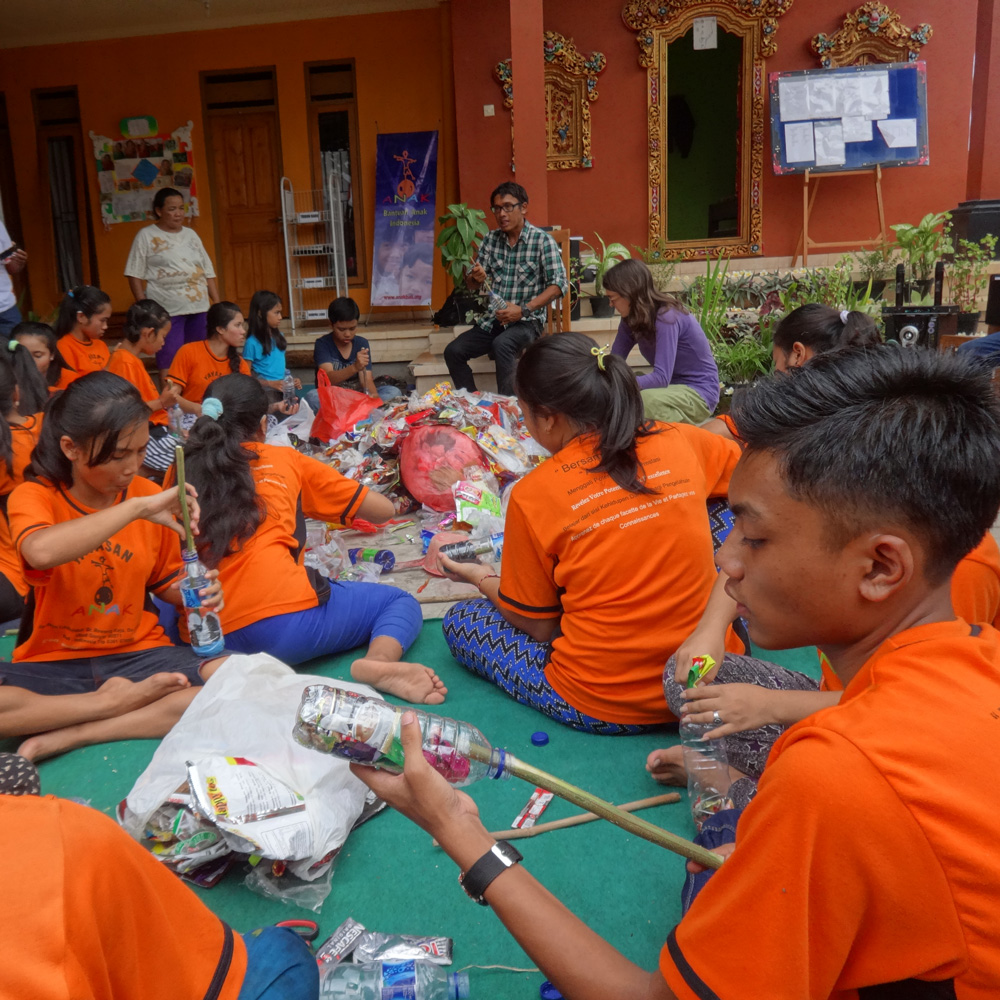
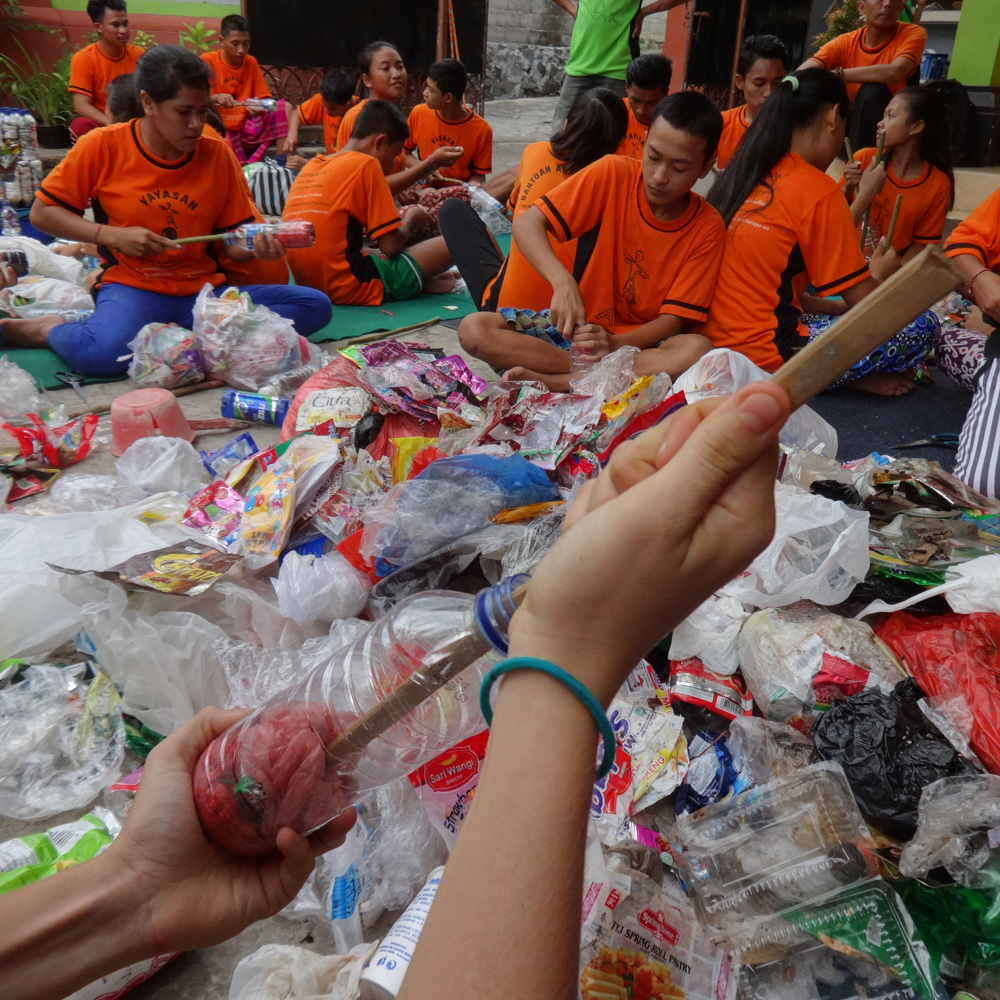

After meeting the creator of Ecobricks at the Bali TRASH FESTIVAL (in June 2016), Anak started a new project whereby the association’s volunteers trained the high-school students of Dharma Cita to make these Ecobricks. These students were then able to teach the other children at Anak. Ecobricks are plastic bottles stuffed with (pre-washed) soft plastic waste material, which is compressed together using bamboo sticks and becomes as solid as bricks. These bricks can then be used to construct houses, furniture, etc. While they make them, the young children enjoy sharing their time by chatting to each other. This construction alternative is fascinating for these children from poor families who live in houses that are not well built and are in extremely bad conditions.
Visit them on Facebook
